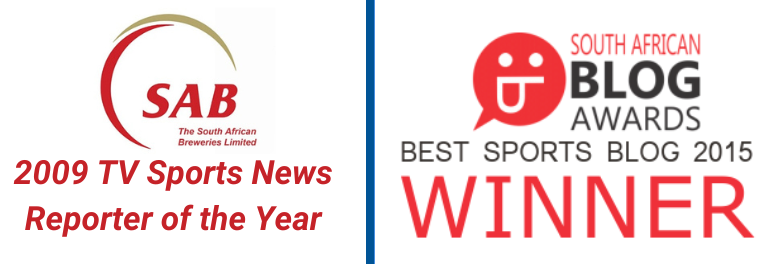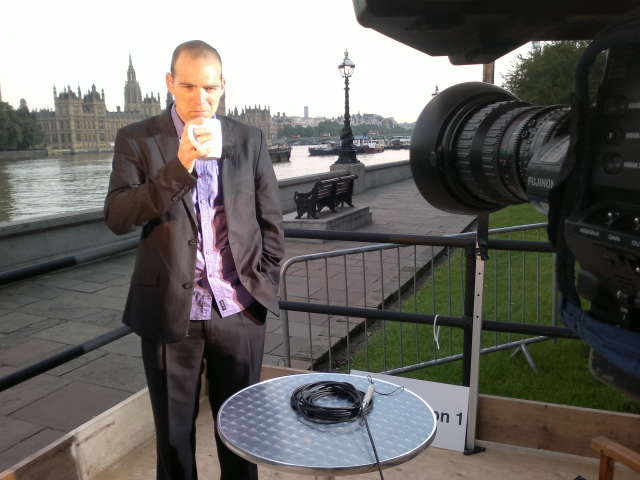I want to share some of my experiences as a non-rights holding broadcaster in the field at a major event and how to make the most of it with you. So imagine the scenario: You are a television, or radio, reporter or presenter and your media house has decided to send you to a major event (usually sport) like the Olympic Games or FIFA World Cup. Yes, you will get to meet some of the best athletes and coaches and interview some of the most famous people in the world. You might even have an opportunity to take a picture with them.
Or maybe that is what you thought?
Too busy to read? You can listen to the audio version of this blog post here:
As it turns out your media house is what they call a Non-Rights Holder. In simple terms this means you have such limited access, that you might have wished you stayed at home. The big broadcasters pay billions of dollars in order to hold the rights to broadcast these competitions and with that comes the privilege of exclusive access. I have covered a FIFA World Cup and an Olympic Games as a non-rights holder and in order to achieve any kind of success, you might want to read on, because your news editor (not sports editor) is unlikely to have much sympathy for you and you will be expected to deliver.
I covered the FIFA World Cup in my own country so I will use the 2012 Olympic Games in London as an example of what you might look to do. I already had experience of being a non-rights holder reporter so I expected limitations but even I was surprised upon arriving in London, despite reading up on the rules beforehand. On the first day of competition we went to a cycling event. Well it did not help us when my cameraman was asked to kindly leave his camera at the front door. What do you do? How and what will you file? There are millions of people ready to tune in later tonight to watch Olympic Games coverage. “Sorry they wouldn’t let us in”, will never be an acceptable excuse.
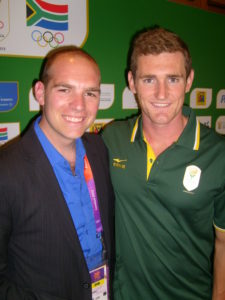
I set about devising a plan. We could not enter Olympic competition venues with our camera, but we could go all over London so each of my pieces-to-camera (PTC/standup/link) were shot with a different iconic London background behind me. Before the Games, I signed up with all the official sponsors’ newsletters. As it turned out they had daily events and any media house could attend these. We made a point of going to all of them and by doing that we had several Olympic gold medal legends’ quotes to send back home. “How did you get Maurice Green and Dick Fosbury?” they asked. They didn’t have to really know!
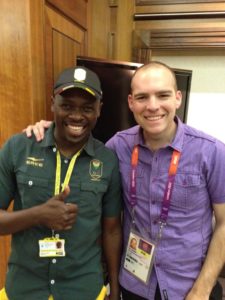
We were quite fortunate in that the South African delegation put up their own little media hub so we went there often to interview South African delegates on the progress of the team. It helped that South Africa won quite a few medals in London and “South Africa House” hosted each of those medallists so that way we got more one-on-one interviews with the South African heroes.
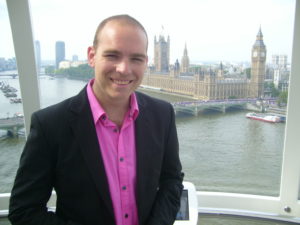
Outside of that, we were on the lookout for pretty much whatever we could use as material. On a mission like that, there is usually a day or two that will present an opportunity to produce a colour piece. My cameraman and I were astounded at the general unfriendliness of Londoners. We wondered how anyone made friends in the UK capital and then one day on the tube I spotted a sign for a dating website and the next thing you know THIS package was put together:
We were praised and criticised for our work in London during the Olympics. In fact every one save for the news editor was happy but then there is no pleasing everyone.
Here’s a short, summarised check list if you’re going to cover an event as a non-rights holder:
1 Read up on the restrictions beforehand so you know exactly what you’re in for.
2 Make contact with the organisers, sponsors, administrators, officials, ANYONE AND EVERYONE YOU CAN, before the time to establish potential interviews.
3.1 Draw up your own diary for the duration of the event so you know where you are going and when you are going to do it.
3.2 You can use that diary to tell your editors back home what you plan to do the next day
3.3. This will go a long way towards avoiding being told what to do from someone who does not fully appreciate the restrictions that you are working under.
4 Once you are at the event, respect the rules. Respect goes a long way and you never know, you might just be invited to an event that strictly speaking, you are not allowed to be at.
5 When you interview someone, ask plenty of questions that are not necessarily related to your story. You can archive these and use at a later stage.
6 Have fun and enjoy the experience. Even though there are restrictions in place, you can still have a wonderful time covering an event as a non-rights holder.
I hope this article has been useful to you if you are about to go cover a big event as a non-rights holder. I would love to hear from you on how you have covered events as a non-rights holder too. You can comment below.
